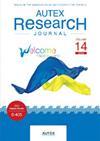供应链可持续性相关风险和脆弱性建模:来自巴基斯坦纺织行业的见解
IF 1.1
4区 工程技术
Q3 MATERIALS SCIENCE, TEXTILES
引用次数: 8
摘要
摘要与可持续性相关的风险和脆弱性管理已引起学术界和工业界的极大关注。巴基斯坦等发展中国家的制造业面临着严峻的经济压力,正在努力促进可持续的供应链实践,以实现卓越的商业。在这种背景下,本研究的目的是研究与可持续发展目标相关的关键供应链风险,即社会、经济和环境因素。故障模式与影响分析(FMEA)技术用于对风险因素进行分类,帕累托分析用于突出更关键和更危险的因素。为此,在巴基斯坦纺织行业进行了一项大规模调查,为纺织供应链中与可持续性相关的风险和脆弱性制定了一个风险缓解模型。它捕获了专家对风险因素的输入表达式,即严重程度(s)、发生率(o)和检测率(d),用于计算已确定备选方案的风险优先级数(RPN)。结果表明,内生环境风险对纺织制造业来说是最重要的,与可持续性相关的各种风险之间的接口也很高。这项研究将为行业管理者和决策者提供一个工具包,以在组织前提下创造可持续的制造文化。本文章由计算机程序翻译,如有差异,请以英文原文为准。
Modeling Supply Chain Sustainability-Related Risks and Vulnerability: Insights from the Textile Sector of Pakistan
Abstract Sustainability-related risk and vulnerability management have attained significant attention from academia and industry. Manufacturing industries in developing countries such as Pakistan are under severe economic pressure and striving to boost sustainable supply chain practices for achieving business excellence. In this context, the objectives of the present research are to examine the critical supply chain risks associated with sustainable development goals, namely social, economic, and environmental factors. The failure mode and effect analysis (FMEA) technique is employed for categorizing the risk factors and Pareto analysis for highlighting the more crucial and risky factors. For this purpose, a large-scale survey was carried out in the textile industries of Pakistan to develop a risk mitigation model for sustainability-related risks and vulnerability in a textile supply chain (TSC). It captures the input expressions of experts for risk factors, namely severity (s), occurrence (o), and detection (d) for calculating the risk priority numbers (RPNs) of identified alternatives. The results depict that endogenous environmental risks categorize as the most significant for the textile manufacturing industries, and the interfaces between the various risks associated with sustainability-related are also found very high. This study would be a toolkit for the industrial managers and policy-makers for creating sustainable manufacturing culture on organizational premises.
求助全文
通过发布文献求助,成功后即可免费获取论文全文。
去求助
来源期刊

Autex Research Journal
MATERIALS SCIENCE, TEXTILES-
CiteScore
2.80
自引率
9.10%
发文量
40
审稿时长
>12 weeks
期刊介绍:
Only few journals deal with textile research at an international and global level complying with the highest standards.
Autex Research Journal has the aim to play a leading role in distributing scientific and technological research results on textiles publishing original and innovative papers after peer reviewing, guaranteeing quality and excellence.
Everybody dedicated to textiles and textile related materials is invited to submit papers and to contribute to a positive and appealing image of this Journal.
 求助内容:
求助内容: 应助结果提醒方式:
应助结果提醒方式:


